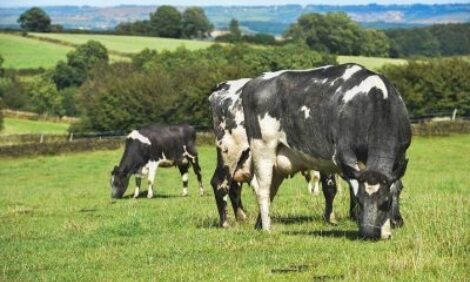



Horse Meat Found in Burgers
GLOBAL - Traces of horse meat and pig meat have been found in beef burgers being sold at a number of supermarket chains in Ireland and the UK.The traces of horse and pig DNA were found in the burgers following a study by the Food Safety Authority of Ireland.
The FSAI findings are part of a targeted study examining the authenticity of a number of beef burger, beef meal and salami products available from retail outlets in Ireland.
The study which tested for the presence of horse and pig DNA, reveals the presence of horse DNA in some beef burger products.
The FSAI said this raises concerns in relation to the traceability of meat ingredients and products entering the food chain.
A total of 27 beef burger products were analysed with 10 of the 27 products (37 per cent) testing positive for horse DNA and 23 (85 per cent) testing positive for pig DNA. In addition, 31 beef meal products (cottage pie, beef curry pie, lasagne, etc) were analysed of which 21 were positive for pig DNA and all were negative for horse DNA. All 19 salami products analysed tested negative for horse DNA.
Traces of horse DNA were also detected in batches of raw ingredients, including some imported from The Netherlands and Spain.
The beef burger products which tested positive for horse DNA were produced by two processing plants (Liffey Meats and Silvercrest Foods) in Ireland and one plant (Dalepak Hambleton) in the UK.
They were on sale in Tesco, Dunnes Stores, Lidl, Aldi and Iceland. In nine of the 10 beef burger samples from these retailers, horse DNA was found at very low levels.
However, in one sample from Tesco, the level of horse DNA indicated that horsemeat accounted for approximately 29 per cent relative to the beef content. The FSAI is working with the Department of Agriculture, Food and the Marine, and the processing plants and retailers involved.
The retailers have stated that they are removing all implicated batches from sale. In addition, Silvercrest Foods has informed the FSAI that it is withdrawing all products from sale and replacing them with new products.
According to Prof Alan Reilly, Chief Executive, FSAI, whilst these findings pose no risk to public health they do raise some concerns.
He said: “The products we have identified as containing horse DNA and/or pig DNA do not pose any food safety risk and consumers should not be worried. Consumers who have purchased any of the implicated products can return them to their retailer.
“Whilst, there is a plausible explanation for the presence of pig DNA in these products due to the fact that meat from different animals is processed in the same meat plants, there is no clear explanation at this time for the presence of horse DNA in products emanating from meat plants that do not use horsemeat in their production process.
"In Ireland, it is not in our culture to eat horsemeat and therefore, we do not expect to find it in a burger. Likewise, for some religious groups or people who abstain from eating pig meat, the presence of traces of pig DNA is unacceptable.
"We are working with the meat processing plants and the Department of Agriculture, Fisheries and the Marine to find out how horse DNA could have found its way into these products,” concluded Prof. Reilly.
The FSAI and its official agencies carry out a number of surveys and studies each year as part of its proactive monitoring activities. These product surveys provide a snapshot of the status of products on the market at specific time. The legal responsibility for placing safe food on the market lies with the food industry and the FSAI routinely monitors and samples for compliance.
Tim Smith, Group Technical Director said: "Today we were informed that the Food Safety Authority of Ireland (FSAI) has found that a number of beef products they have recently tested contained horse DNA. These included two frozen beef burger products sold by Tesco in both the UK and Ireland. Products sold at other retailers were also discovered to contain horse DNA.
"We immediately withdrew from sale all products from the supplier in question. We are working with the authorities in Ireland and the UK, and with the supplier concerned, to urgently understand how this has happened and how to ensure it does not happen again. We will not take any products from this site until the conclusion and satisfactory resolution of an investigation.
"The safety and quality of our food is of the highest importance to Tesco. We will not tolerate any compromise in the quality of the food we sell. The presence of illegal meat in our products is extremely serious. Our customers have the right to expect that food they buy is produced to the highest standards.
"The relevant authorities have said that these findings pose no risk to public health. We understand that many of our customers will be concerned by this news, and we apologise sincerely for any distress. Our customer service team is standing by to answer any questions customers may have."
A statement from Francis Mallon, the managing director of Liffey Meats said: "In our case equine DNA was detected in three products.
"However, it must be emphasised that the levels of detection were minute. In two of the three samples the levels (as officially reported by FSAI) are so low as to be at the Limit of Quantification (LOQ=<0.061 per cent). In the case of the third sample the level reported is less than 0.1 per cent.
"Liffey Meats has never produced, purchased or traded in equine products. We do import some raw ingredients as part of our manufacturing process for certain products. As part of their analysis programme with us, the FSAI identified traces of equine DNA in some of these raw ingredients. These ingredients were supplied from an EU approved plant and were certified as from bovine sources only. We now believe that such imported raw ingredients were the ultimate source of the DNA traces found in some of our products.
"As part of our enhancement of control procedures, we are carrying out extensive DNA testing of all categories of ingredients used on the site. This is a precautionary measure only, however, we believe that we must undertake any measure that can provide additional reassurance to our customers."
A spokesperson for Silvercrest Foods, a subsidiary of ABP Foods, said: “This issue affects a number of burger manufacturing companies in Ireland, including Silvercrest Foods.
"Following tests carried out by the Food Safety Authority of Ireland, we have been alerted to frozen beef burgers which contain porcine and equine DNA.
"Although the products pose no risk to public health, Silvercrest has taken immediate action to isolate, withdraw and replace all suspect product. Silvercrest has never purchased or traded in equine product and has launched a full-scale investigation into two continental European third party suppliers who are the suspected source of the product in question."
Stephen Rossides, Director of the British Meat Processors Association said: ”The Irish food safety authorities have stated that there are no human health risks involved in this episode. This is not a food safety issue.”
“But traces of equine DNA and porcine DNA have been found in some products that were described as beef burgers.
At this stage, we do not know how this could have happened. It is vital that urgent and thorough investigations are carried out along each of the meat supply chains associated with these consumer products to get to the bottom of what has occurred.“
He added: "The great bulk of food products, including meat and meat products, are safe, produced to good quality standards and correctly described and labelled by food manufacturers. UK consumers can trust the food they buy.
"But this episode - rare and unusual though it is - undermines consumer confidence and trust in the meat industry, and causes reputational damage to it.
"We must get to the bottom of what went wrong and why, and how such an incident can be prevented in the future. Our customers and consumers must be able to put their trust in our industry.”
NFU Scotland Communications Director Bob Carruth said: "Scottish farmers will continue to supply the food chain in the firm and justifiable belief that all meat that goes into a beef burger should be beef. Consumers expect no less.
"The undisclosed inclusion of horsemeat in some value beef burgers damages the reputation of our food industry and must prompt an immediate investigation of supply chains in place at home and abroad.
"While assurances on the safety of the product have been provided, consumers buying such beef burgers have been seriously misled on the quality and provenance of their food.
"That is a spectacular own goal for parts of our food sector and doesn't reflect on the fantastic job being done by Scottish beef farmers in providing the market with fresh, tasty, traceable, assured beef."
The Irish Cattle and Sheep Farmers Association president Gabriel Gilmartin has said that he is “very concerned at the FSAI statement that horse DNA was detected in certain products including beef burgers produced by Liffey Meats and Silvercrest Foods.”
“It is too early to say how this has come about. It has to be stressed that there is no safety issue but it is clearly unacceptable if there is any doubt about the provenance or the content of a beef burger. There is some suggestion from the FSAI that DNA traces emanate from raw materials imported from other EU countries.
It would be totally outrageous if meat factories have tried to cut corners rather than using 100 per cent Irish beef in their products.
“Farmers will feel that the Department of Agriculture needs to spend more time inspecting and monitoring processors and less time on farms. ICSA urges Minister Coveney to instigate a full investigation immediately.”
TheCattleSite News Desk


